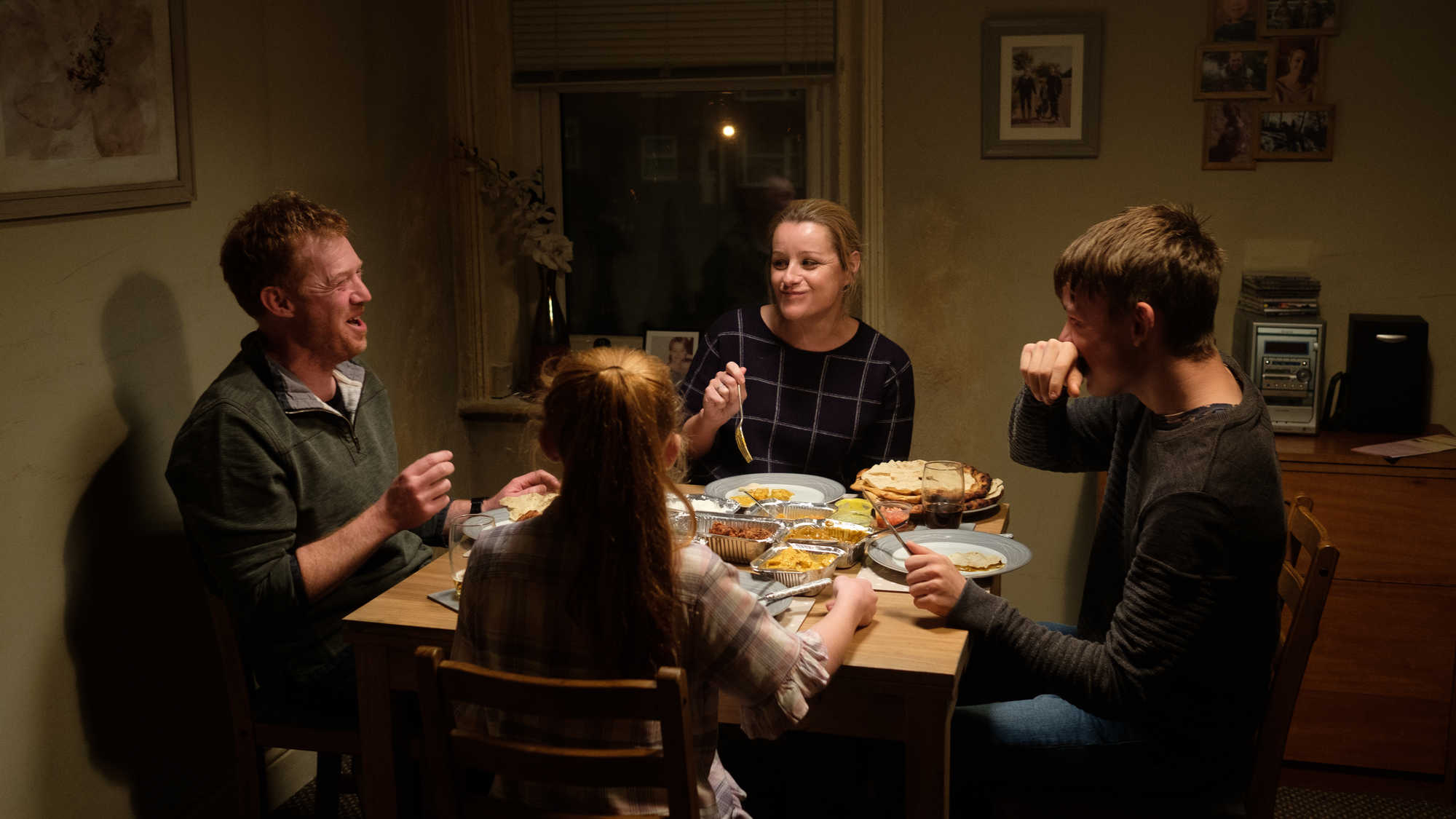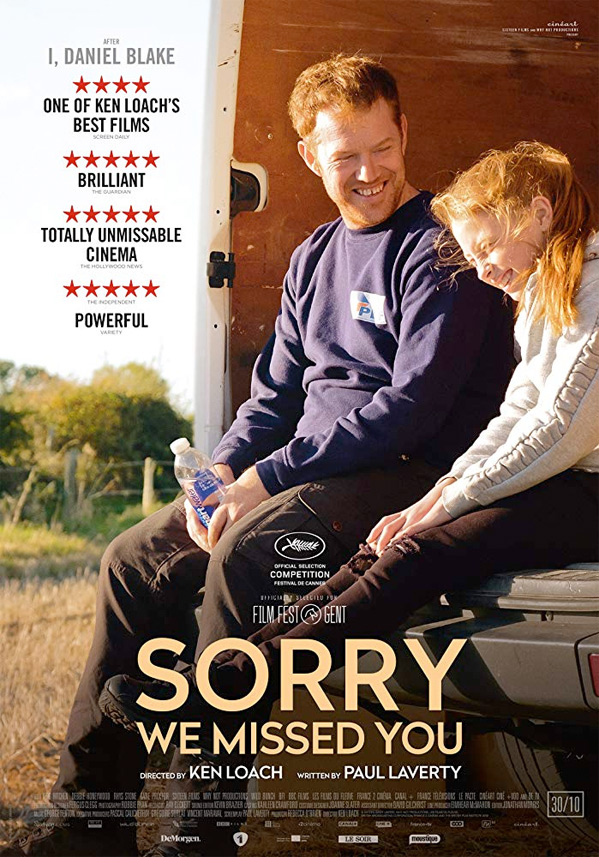This latest offering from Loach shows us how difficult it is to raise a healthy family whilst also working yourself to the edge.
Teaming up for possibly the final time, Ken Loach and screenwriter Paul Laverty launch themselves back into the eyes of the Cannes film festival with another brilliant take on working class Britain, this time around delving into the nonsensical zero-hour contract scheme that affects thousands of people around the country. It is an emotional journey of ups and downs that brings tears and frustrations to those who watch it, yet still leaving you confused about how such an issue is still unable to be resolved.
I, Daniel Blake is still undoubtedly my favourite film by Loach, it imprinted something very meaningful onto me that will last forever, however, this effort is no less impressive at depicting the souls of human lives, centring around people who face the consequences from a national economic downfall. What this film does include in contrast to the previous instalment is an exploration into the lives of all the family members and the varied levels of stress and anger that inflicts each one of them. There are light-hearted moments involving a beautiful family bond and an insight into the sheer pain raising hormonal teenagers as well as being slaves to a broken system of employment in a hope of feeding the ones you love.

The story revolves around a family living in Newcastle who go from rented house to rented house, all played by amateur actors which is something that skyrockets this film into a different realm of authenticity. We follow Ricky who is played by Kris Hutchen, a man who lost his construction job and original mortgage plan due to the infamous 2008 financial crash. Ricky seems to love his family and will do anything for them unless his temper gets in his way. He is joined by his wife Abbie who is played with such an impressive range by Debbie Honeywood. Abbie is a house to house nurse, visiting many different elderly people, disabled and vulnerable people every day, working on a zero-hour contract and a slave to the job whilst craving some sort of emotional bond. Completely committed to the job means she has no time for her children, a fact that eats away at her gradually. Her children include her son Seb (Rhys Stone) a hormonal teenager that is constantly warring with his father, and finally the youngest of the family, Liza Jane (Katie Proctor), who yearns for a happy family again.
Ricky learns about a job opportunity from his mate, with the aim of this being the answer to all his problems, unbeknownst that it could be his downfall, the job in question, working for a delivery company as a van driver. The problems first arise when the impervious manager, Maloney (Ross Brewster) explains that Ricky will be hired as a self-employed driver, gaining none of the benefits working for a company would offer. Ricky needs his own van or be riddled with questionable rental payments to the company itself through one of theirs, he must also meet severely strict delivery targets or face drastic consequences, as well as being threatened by the “gun”, an oddly given nickname for the all-important scanner a driver must always possess. Maloney is a dispassionate businessman, not interested in his driver’s well-beings and viewing them as pawns that can be sacrificed for the good of his company. Ricky gradually learns the ins and outs of the job, including have to pee into a plastic bottle because there is no time to waste on unscheduled trips to the lavatory, which ultimately leads to a much greater risk than what Maloney is threatening him with.
Undeniably keen to start this supposed enterprise, Ricky convinces Abbie to sell her treasured car that she needs for her equally stressful job, resulting in her taking numerous bus journeys to client’s houses in support of her husband’s plan. Are their financial and family woes now a thing of the past because of this new business opportunity? Or is this the start of steady decline of valuable time that is needed for a family to blossom like they dream of? What does not help the situation is son Seb who is becoming more involved with his wild side, as a brush with the police soon confirms.

Like his wife, Ricky is also on a zero-hours contract, forcing himself to work 6 days a week in fear of being replaced by someone who is “more committed”. Trouble ensues and he is left taking time off work due to severe problems at home that cannot be ignored, leaving him paying “sanctions”, something that he is consistently being told about through Maloney’s dictatorship. A vicious cycle of constant work to pay of his sanctions continues, driving him to breaking point and putting his family at risk. What Ricky does have is the undying support of Abbie, showcasing some real stand out moments of brilliant acting as she experiments with a wide range of emotions. There are certainly some beautiful moments in this film, a segment involving Ricky taking his daughter to work for the day is something that gives us all a break from the pressures of normal life.
There were times whilst watching this film that the acting from some could be seen as too amateurish, but on second viewing it elevates the film and develops the idea that this is genuine and is happening right throughout the country. The indecisive acting represents the indecisive human who is faced with these overwhelming problems. A spectacularly emotional film that will leave you with a whole host of different tears, and if this is to be Loach’s final swansong then he has made it a memorable and truly brilliant interpretation of current events.
Available to watch on Amazon Prime now.

No Comment.